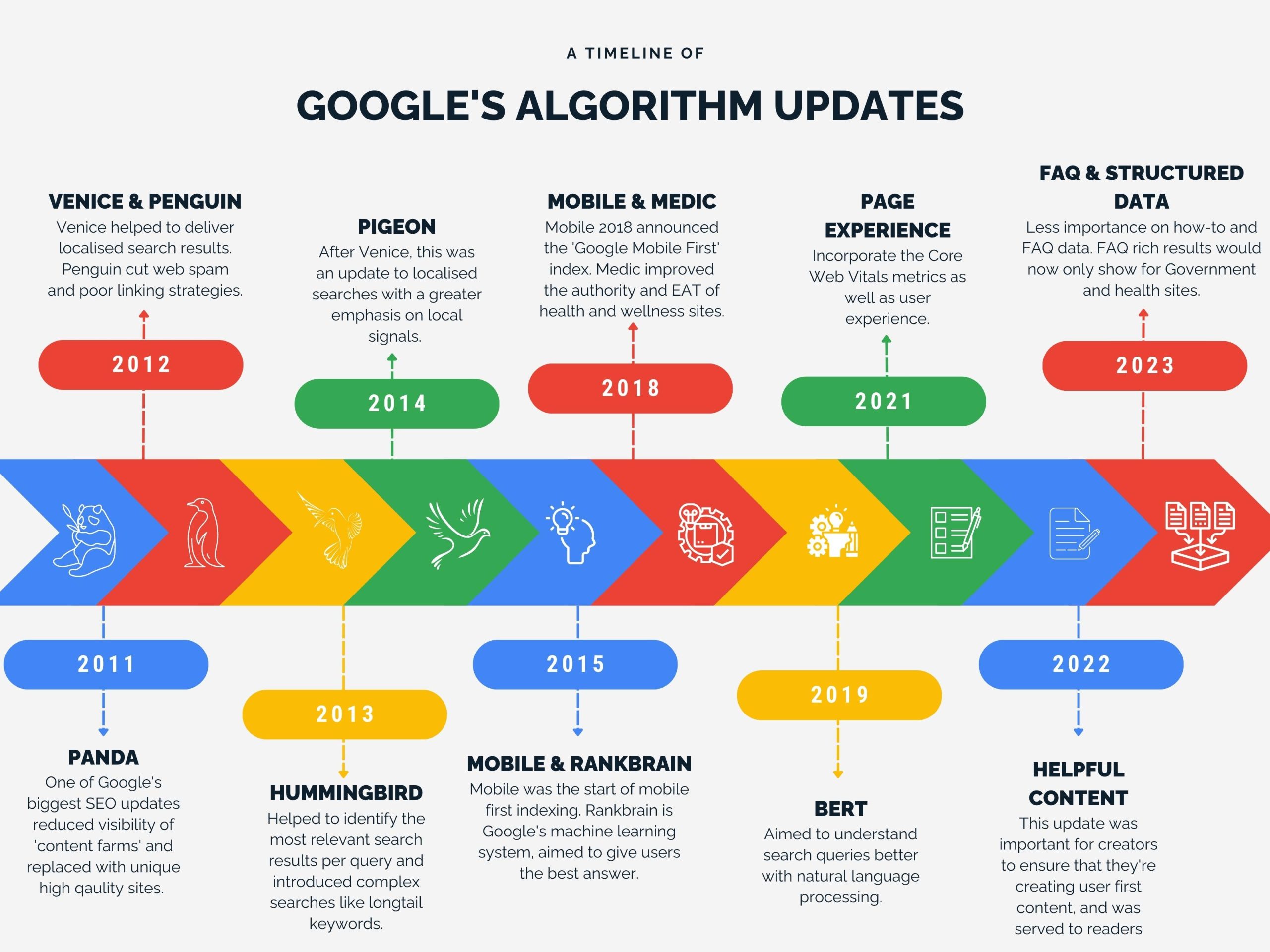
The Dynamic Landscape of SEO: Navigating Algorithm Changes
In the ever-evolving world of digital marketing, staying abreast of SEO algorithm changes is crucial for maintaining and enhancing online visibility. Let’s explore the dynamics of these changes and strategies to navigate them effectively.
Understanding the Nature of SEO Algorithm Changes
SEO algorithms, the intricate formulas search engines use to rank websites, undergo continuous refinement. These changes are initiated to improve user experience, relevance, and the quality of search results. Understanding the motives behind algorithm updates is fundamental to adapting successfully.
Adapting to Core Updates: A Holistic Approach
Core updates, major algorithm changes that occur several times a year, can significantly impact search rankings. To adapt effectively, adopt a holistic approach. Assess content quality, user experience, and relevance to user intent. Regularly update and optimize content to align with the evolving criteria of core updates.
Content Relevance and Quality: Core Pillars of SEO Success
Content lies at the heart of SEO, and its quality and relevance are paramount. Algorithm changes often prioritize high-quality, relevant content. Invest in creating comprehensive, well-researched, and user-friendly content. Regularly audit and update existing content to meet evolving standards and user expectations.
User Experience Optimization: A Ranking Factor
User experience is a key factor in SEO algorithm changes. Search engines aim to deliver results that offer a positive experience for users. Prioritize mobile optimization, enhance page load speed, and ensure intuitive navigation. A seamless user experience contributes to improved rankings amidst algorithm shifts.
E-A-T: Expertise, Authoritativeness, and Trustworthiness
E-A-T, an acronym for Expertise, Authoritativeness, and Trustworthiness, is a focal point in algorithm changes. Establishing your website as an authoritative source in your industry is vital. Showcase expertise through well-researched content, highlight credentials, and build trust with transparent and reliable information.
Backlink Quality: Navigating Link Profile Changes
Backlinks play a crucial role in SEO, and algorithm changes often refine their evaluation. Focus on acquiring high-quality, relevant backlinks from authoritative sources. Regularly audit your link profile, disavow toxic links, and proactively build a diverse and natural link profile to withstand algorithmic scrutiny.
Local SEO Considerations: Staying Relevant in Searches
Local SEO is integral, especially with the growing emphasis on localized search results. Keep an eye on algorithm changes affecting local searches. Optimize your Google My Business listing, gather positive reviews, and ensure consistent NAP (Name, Address, Phone number) information across online platforms.
Mobile-First Indexing: Prioritizing Mobile Experience
As mobile usage continues to rise, mobile-first indexing has become a standard practice. Algorithm changes often reflect this emphasis on mobile experience. Ensure your website is responsive, optimize for mobile speed, and provide a seamless experience across various devices to align with mobile-first indexing.
Structured Data Markup: Enhancing Search Understanding
Structured data markup aids search engines in understanding the content on your pages. Algorithm changes may prioritize pages with clear structured data. Implement schema markup to provide additional context to search engines, enhancing the chances of your content appearing prominently in search results.
Continuous Monitoring and Adaptation: SEO Resilience
The key to navigating SEO algorithm changes lies in continuous monitoring and adaptation. Stay informed about industry updates, subscribe to official search engine communications, and actively participate in SEO communities. Regularly audit and adjust your strategies to maintain resilience amidst the evolving SEO landscape.
Embracing SEO Algorithm Changes for Success
In conclusion, embracing SEO algorithm changes is not a choice but a strategic necessity in the dynamic digital landscape. By understanding the motives behind updates, adapting to core changes, prioritizing content quality, optimizing user experience, and staying vigilant, businesses can not only withstand algorithm shifts but also thrive in the competitive online sphere.
For a deeper understanding of SEO algorithm changes and strategies, visit SEO Algorithm Changes.





